Kitchen Sink Materials to Consider
1. Stainless Steel
By far the most popular material for kitchen sinks, stainless steel sinks are resistant to heat and stains and are available in a variety of types, styles and sizes. I recommend going for a brushed or satin finish rather than a mirror finish — water marks and scratches will be less noticeable.
Also, look for sinks that have sound-absorbing pads on the exterior sides and bottom. Consumer Reports tested stainless steel sinks and found that these pads, rather than sound-absorbing spray or a thicker gauge of steel, performed best in reducing the noise commonly associated with stainless steel sinks.
Stainless steel sinks are now available in other metallic hues such as bronze, gold (pictured here), pewter and even black. The colored finish is applied using a process called Physical Vapor Deposition, or PVD, which results in a finish that is durable and corrosion resistant.
Prices for stainless steel sinks run the gamut, but you can get a decent-quality stainless steel sink for not a lot of money, making it my pick for those on a tight budget.
All sink types will vary widely in cost, from a couple hundred dollars to thousands of dollars, depending on size, material, mounting type and other factors, so do some research on each material with your specifications in mind.
Prices for stainless steel sinks run the gamut, but you can get a decent-quality stainless steel sink for not a lot of money, making it my pick for those on a tight budget.
All sink types will vary widely in cost, from a couple hundred dollars to thousands of dollars, depending on size, material, mounting type and other factors, so do some research on each material with your specifications in mind.
2. Composite Granite
Composite granite sinks are my go-to sink, both for my clients and for my own kitchen. They are good looking, durable and don’t show water spots or scratches the way stainless steel sinks do. They come in a variety of neutral colors, but I prefer the darker grays, browns and black because they are less likely to show stains from things like coffee and red wine.
Although these sinks are durable, they can crack if mishandled. I’ve heard stories of sinks being damaged during shipping. Always inspect your composite sink thoroughly before installation to make sure it didn’t suffer trauma during transit.
The sink shown in this photo is an Ikon apron-front Silgranit sink in metallic gray by Blanco.
Composite granite sinks are my go-to sink, both for my clients and for my own kitchen. They are good looking, durable and don’t show water spots or scratches the way stainless steel sinks do. They come in a variety of neutral colors, but I prefer the darker grays, browns and black because they are less likely to show stains from things like coffee and red wine.
Although these sinks are durable, they can crack if mishandled. I’ve heard stories of sinks being damaged during shipping. Always inspect your composite sink thoroughly before installation to make sure it didn’t suffer trauma during transit.
The sink shown in this photo is an Ikon apron-front Silgranit sink in metallic gray by Blanco.
3. Fireclay
Manufactured from clay fired at an extremely high temperature, fireclay sinks are highly resistant to scratches, staining and chipping. Cleanup is easy — just dish soap on a sponge, or use a mild abrasive cleanser for tougher marks. These are the sinks I often recommend for those who want a white kitchen sink.
Manufactured from clay fired at an extremely high temperature, fireclay sinks are highly resistant to scratches, staining and chipping. Cleanup is easy — just dish soap on a sponge, or use a mild abrasive cleanser for tougher marks. These are the sinks I often recommend for those who want a white kitchen sink.
4. Cast Iron
Clad in a tough enamel finish, this is another highly durable sink I recommend for white sink fans. It comes in other colors too, but I recommend avoiding faddish colors for items that you want to keep around for a long time, such as your kitchen sink. Keep in mind that cast iron sinks are heavy, so make sure your cabinets are structurally sound and you provide adequate support for the sink.
Clad in a tough enamel finish, this is another highly durable sink I recommend for white sink fans. It comes in other colors too, but I recommend avoiding faddish colors for items that you want to keep around for a long time, such as your kitchen sink. Keep in mind that cast iron sinks are heavy, so make sure your cabinets are structurally sound and you provide adequate support for the sink.
5. Natural Stone
If you are putting in natural stone countertops, such as beautiful soapstone, think about installing an integrated sink to match. Some stones are susceptible to stains, though, so get a sample of the stone you are considering and test it out to make sure you are happy with how it stands up to staining. Soapstone is fairly stain resistant, but it is a softer stone, so you either need to be careful with it or be OK with it developing a patina over time.
If you are putting in natural stone countertops, such as beautiful soapstone, think about installing an integrated sink to match. Some stones are susceptible to stains, though, so get a sample of the stone you are considering and test it out to make sure you are happy with how it stands up to staining. Soapstone is fairly stain resistant, but it is a softer stone, so you either need to be careful with it or be OK with it developing a patina over time.
6. Quartz
Similar to the previous option, if you are installing quartz countertops you can opt to have a matching sink fabricated and installed for a clean, seamless look. One thing to keep in mind with quartz, however, is that the darker, more solid-colored quartzes tend to show scratches and dings much more than lighter colors or those that have more aggregate or patterning to them.
Similar to the previous option, if you are installing quartz countertops you can opt to have a matching sink fabricated and installed for a clean, seamless look. One thing to keep in mind with quartz, however, is that the darker, more solid-colored quartzes tend to show scratches and dings much more than lighter colors or those that have more aggregate or patterning to them.
7. Solid Surface
Like natural stone and quartz, solid surface sinks — a synthetic product composed of acrylic, resin and pigments — can be integrated into the countertop for a smooth, streamlined appearance that’s super easy to clean. Again, it’s best to get a sample of the material you are considering and put it to the test to make sure you are OK with its durability, as some solid surfacing shows scratches.
Like natural stone and quartz, solid surface sinks — a synthetic product composed of acrylic, resin and pigments — can be integrated into the countertop for a smooth, streamlined appearance that’s super easy to clean. Again, it’s best to get a sample of the material you are considering and put it to the test to make sure you are OK with its durability, as some solid surfacing shows scratches.
8. Copper
In the market for something different? Copper sinks are big on charm and also happen to be rust-resistant and antimicrobial, making them a great choice for the kitchen. In fact, there’s been an uptick in interest for copper sinks due to COVID-19. It’s important to note, however, that while copper is one of the least hospitable sink materials for the coronavirus, it can still take up to four hours to completely kill the virus.
As with most things, quality matters when selecting a copper sink, so be sure to choose one that is at least 99% pure copper — a small amount of zinc may be added for strength. Avoid harsh chemicals with these beauties and instead clean up with a mild soap and water, according to the manufacturer’s recommendations.
In the market for something different? Copper sinks are big on charm and also happen to be rust-resistant and antimicrobial, making them a great choice for the kitchen. In fact, there’s been an uptick in interest for copper sinks due to COVID-19. It’s important to note, however, that while copper is one of the least hospitable sink materials for the coronavirus, it can still take up to four hours to completely kill the virus.
As with most things, quality matters when selecting a copper sink, so be sure to choose one that is at least 99% pure copper — a small amount of zinc may be added for strength. Avoid harsh chemicals with these beauties and instead clean up with a mild soap and water, according to the manufacturer’s recommendations.
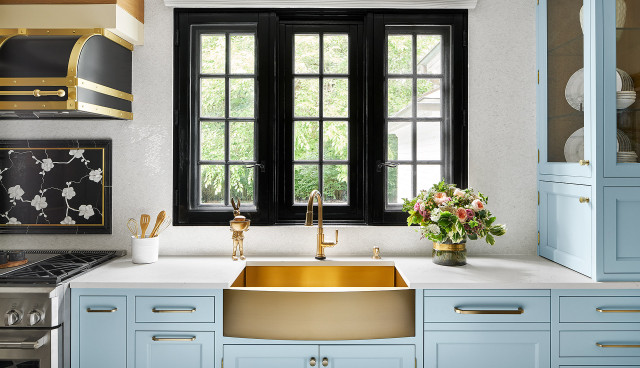
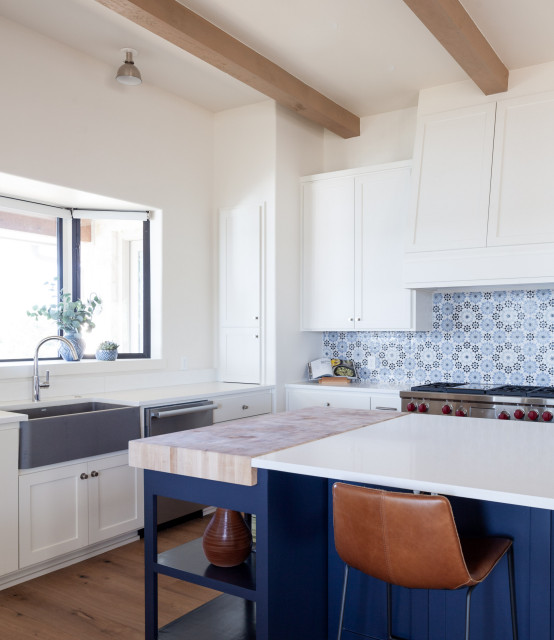
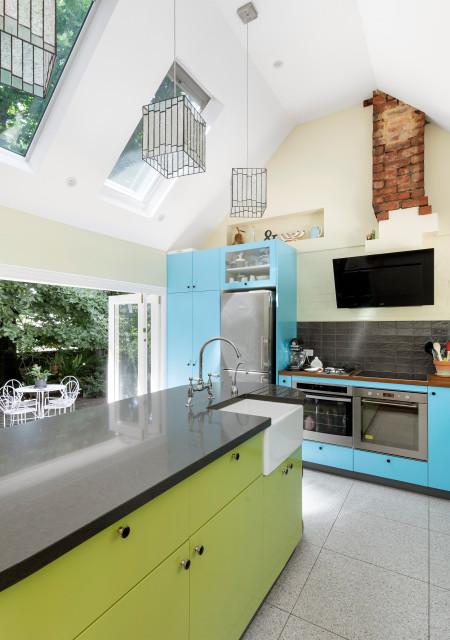
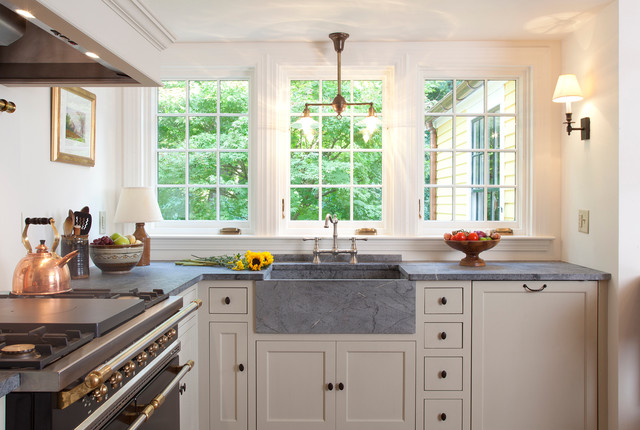
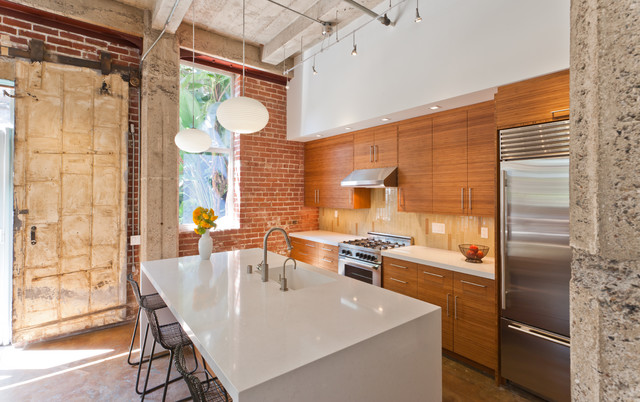
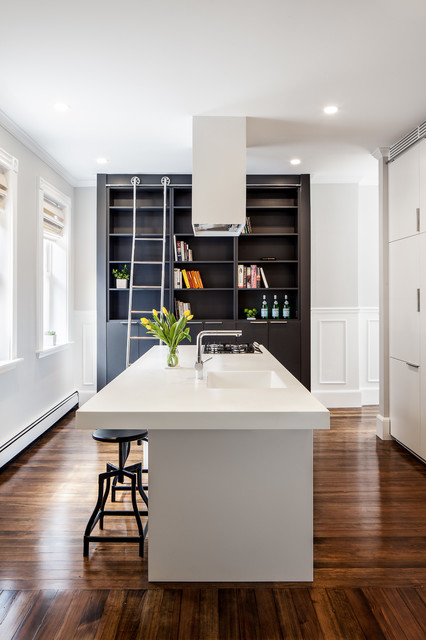
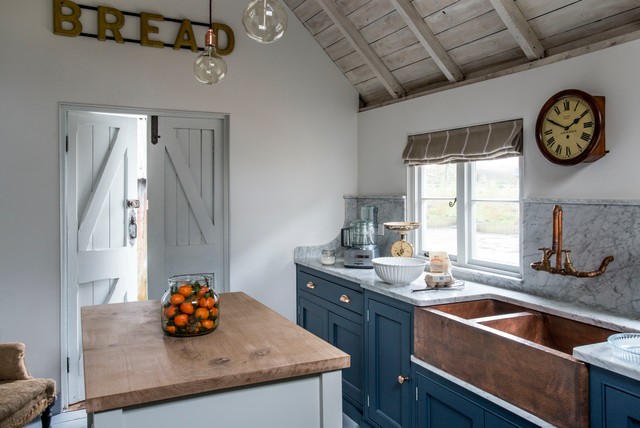
Comments
Post a Comment